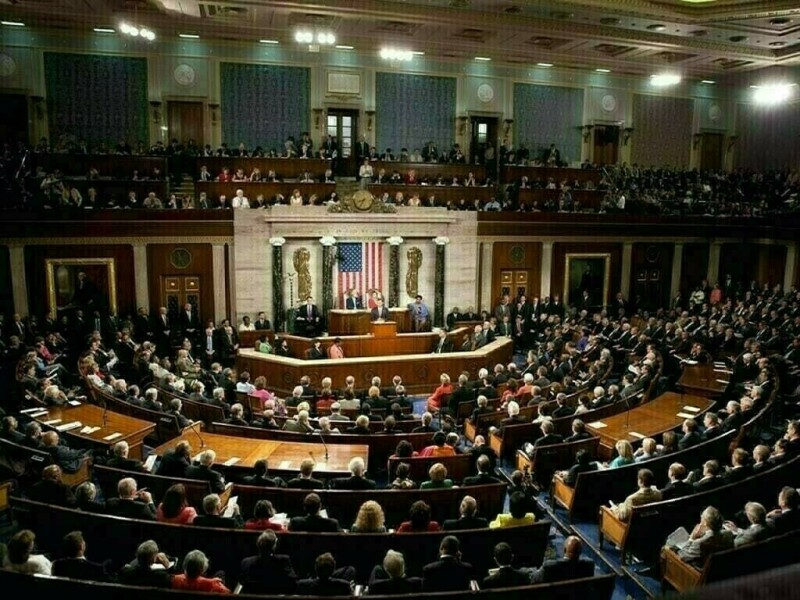By Reuters
WASHINGTON: U.S. Senate Republicans were struggling to pass President Donald Trump’s sweeping tax-cut and spending bill early on Tuesday, amid deep divisions within the party about its expected $3.3 trillion hit to the nation’s debt pile.
The Senate remained in session through the night, voting on a long series of amendments, part of the arcane process Republicans are using to bypass Democratic objections under Senate rules that normally require 60 of the chamber’s 100 members to agree on legislation.
In the pre-dawn hours, the lawmakers voted 99-1 to strip out a 10-year federal moratorium on state regulation of artificial intelligence, which supporters had promoted as a way to free innovation from a panoply of differing requirements.
Trump’s Republicans hold a 53-47 Senate majority and the struggle to pass the bill has laid bare divides within the party over debt. The bill would also cut Medicaid and some food assistance programs for low-income Americans to partly offset the cost of the tax cuts.
“They’re still trying to get a resolution on the vote, and we’ll probably have an hour delay, because they’ve got to get all the technical corrections right,” Republican Senator Thom Tillis told reporters.
Tillis was one of two Republicans who voted on Saturday to try to block advancement of the bill, drawing intense criticism from Trump that led him to say he would not seek re-election next year.
Trump’s sweeping tax-cut, spending bill clears first US Senate hurdle
The nonpartisan Congressional Budget Office released its assessment on Sunday of the bill’s hit to the $36.2 trillion U.S. debt pile. The Senate version is estimated to cost $3.3 trillion, $800 billion more than the version passed last month in the House of Representatives.
Many Republicans dispute that assessment, contending that extending existing policy will not add to the debt. Nonetheless, international bond investors see incentives to diversify out of the U.S. Treasury market.
The debt debate re-ignited a feud between Trump and Elon Musk, the world’s richest person, who on Monday threatened to fund primary challengers to Republicans who voted for the bill, due to its high cost. Trump responded by proposing cuts to funding to Musk’s companies, which include SpaceX and Tesla.
Democrats, meanwhile, hope the latest, eye-widening figure could stoke enough anxiety among fiscally minded conservatives to get them to buck their party, which controls both chambers of Congress.
“We are still going because, through 12 hours of debate and 21 hours of amendment votes, Republicans still don’t have 50votes for their bill. Because it’s a moral monstrosity,” said Democratic Senator Chris Murphy of Connecticut on social media.
Democrats argue that the bill disproportionately benefits the wealthy at the expense of low- and middle-income Americans. Republican supporters say it provides stability by preventing the expiration of Trump’s 2017 tax cuts at the end of this year.
US Senate pushes ahead on Trump tax cuts
Trump wants the 940-page bill passed before the July 4 Independence Day holiday.
No. 2 Senate Republican John Barrasso declined to forecast when the chamber would vote on the bill, telling reporters only: “Not yet.”
Bill politics
Amendments proposed by Democratic senators, such as limiting cuts to Medicaid, were rejected by the Republican majority overnight.
Embedded in the Senate Republicans’ bill are several hot-button political issues, including a prohibition of Medicaid funding for a list of almost 30 medical procedures related to gender transition, as well as an increase of immigration-related funding for criminal and gang checks for unaccompanied migrant children, including examinations of “gang-related tattoos” for children as young as 12 years old.
Early on Tuesday, the Senate also adopted an amendment offered by Republican Senator Joni Ernst to prevent jobless millionaires from claiming unemployment compensation.
Democrats and Republicans voted down an attempt by Republican Senator Susan Collins to cushion the impact of Medicaid cuts on rural health facilities by doubling federal support to $50 billion over five years and paying for the increase by raising the top federal tax rate. The measure still drew support from 18 Republicans.
Some Republicans, including Senator Lisa Murkowski and Collins, backed a handful of Democratic amendments on social issues, including Medicaid. But the initiatives still failed.
US House passes Trump’s sweeping tax-cut bill, sends on to Senate
Debt ceiling deadline
The Republican measure contains a $5 trillion debt ceiling increase – $1 trillion more than the House’s bill – but failure to pass some version would present lawmakers with a serious deadline later this summer, when the Treasury Department could come close to exhausting its borrowing authority and thus risk a devastating default.
The debt limit increase has caused Senator Rand Paul of Kentucky to come out in opposition to the bill, joining fellow Republican Tillis, who decried its cuts to Medicaid and clean energy initiatives.
According to the Congressional Budget Office, the Senate bill would result in about 11.8 million additional uninsured people, surpassing estimates for the House’s version.
If the Senate succeeds in passing the bill, it will then go to the House, where members are also divided, with some angryabout its cost and others worried about cuts to the Medicaid program.
The megabill would extend the 2017 tax cuts that were Trump’s main legislative achievement during his first term as president, cut other taxes and boost spending on the military and border security.
Senate Republicans, who reject the budget office’s estimates on the cost of the legislation, are set on using an alternative calculation method that does not factor in costs from extending the 2017 tax cuts.
Outside tax experts, like Andrew Lautz from the nonpartisan think tank Bipartisan Policy Center, call it a “magic trick”.
Using this calculation method, the Senate Republicans’ budget bill appears to cost substantially less and seems to save $500 billion, according to the BPC analysis.
